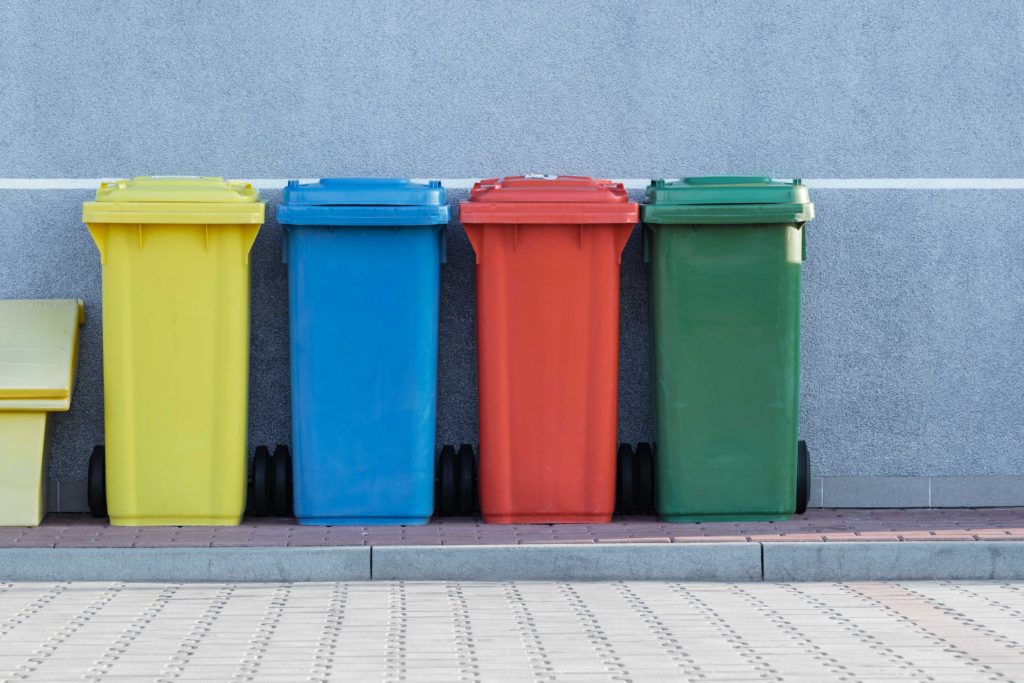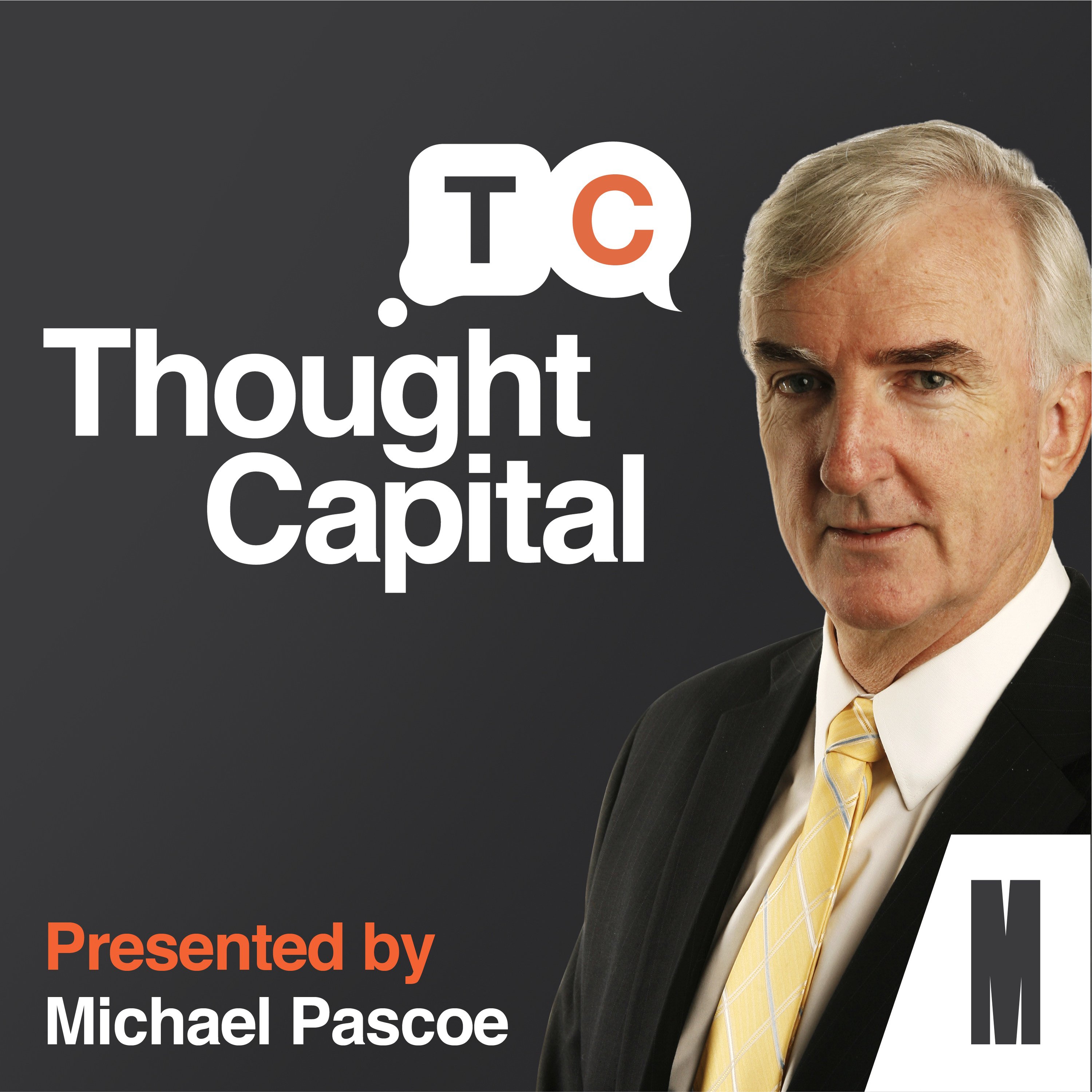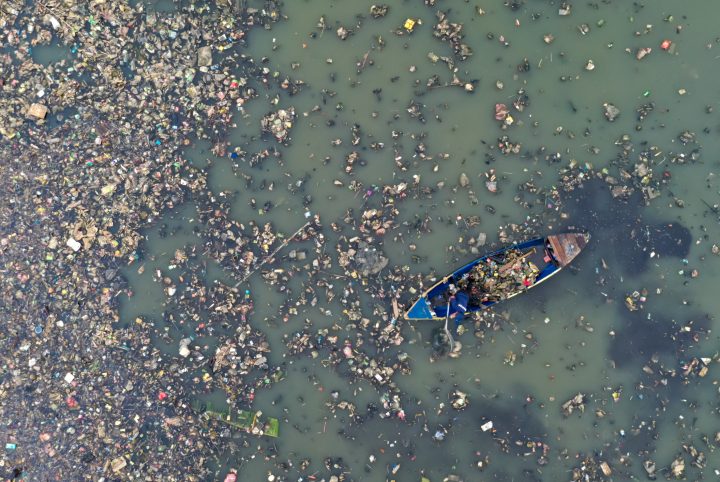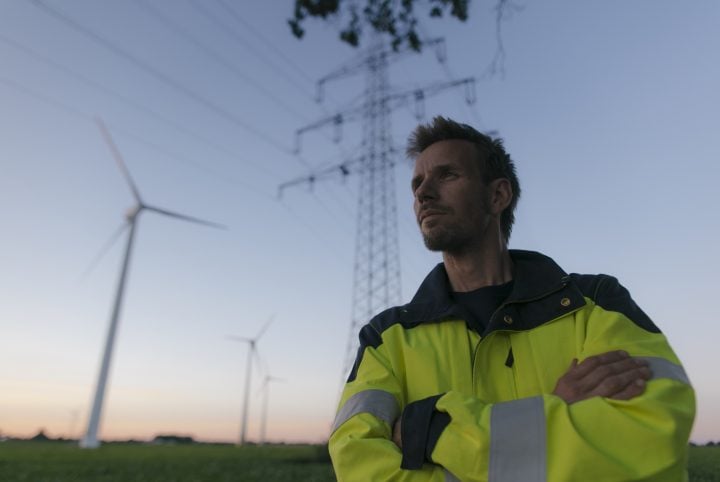Michael Pascoe: Welcome to Thought Capital, the podcast that delves into the wealth of ideas created by the experts at Monash Business School in Melbourne, Australia.
Rebecca Dare: We’re seeing consumers being more mindful of the purchase decisions they are making to products that they see are more environmentally sustainable, better for them, and better for the welfare of animals.
Michael Pascoe: Trend watchers have discovered consumption trends driven by climate change, or perhaps more broadly, social consciousness. Plant-based diets and vegetarianism are on the rise. De-cluttering, shopping bans, recycling and ethically-sourced goods are becoming more popular. So are they trends or fads? Something at the margin for the proverbial soy latte sipping hipster or something more than that? If they’re more than that, what does it mean for grocery stores and retail? How will they have to adapt to increasingly environmentally conscious consumers? We welcome Dr. Rebecca Dare, managing director of the Australian Consumer and Retail Studies Research unit in the Monash Department of Marketing. Welcome to Thought Capital.
Rebecca Dare: Thank you very much, Michael.
Michael Pascoe: The environmentally conscious consumer, trend, fad or just something at the margin?
Rebecca Dare: Definite trend. Definitely moving to more mainstream as well.
Michael Pascoe: How do you measure it?
Rebecca Dare: If we have a look at numbers in terms of vegetarians in Australia, it was 9.7 per cent in 2012. It’s 11.2 per cent in 2016. And given trends particularly towards veganism that we’ve seen more recently, we’d expect that number to rise. There’s about 2 per cent of the population’s vegan right now, but given these concerns towards environmentally friendly animal welfare and also general health, we’d expect these trends to become mainstream.
Michael Pascoe: 11 point something percent vegetarian. I obviously hang out with a lot of carnivores, feasting on the bones of beasts. That surprises me, there’s that high a figure.
Rebecca Dare: And we can expect that to continue growing, particularly with say if we talk to carnivores. Hungry Jack’s this week in the US released a meat-free burger and a food lobbyist in the US, so very powerful institution there, actually said it tasted fantastic. If he hadn’t been told it wasn’t real meat, he wouldn’t know the difference.
Michael Pascoe: So what does that do to retail if vegetarianism is on the rise?
Rebecca Dare: We’re seeing a result already with more products being available for more occasions. Particularly in the UK this has really taken off with say Marks & Spencer has a vegan line, so does Tesco. There’s a lot more vegan exclusive events, and Vegananuary is now a thing as well. So this year there were hundreds of thousands of people participating in the UK, so we’re seeing that really take off.
Michael Pascoe: The economic growth depends on spending more money to buy ever more stuff. Our first law of economics, wants are unlimited. Are you talking revolution?
Rebecca Dare: I’m not talking revolution or it’s a slow building revolution. So the term vegan was first coined in 1944 so it’s been a long time coming with that one. What we’re seeing is consumers being more mindful of the purchase decisions that they are making. I don’t see a contraction in spend, I see a reallocation of spend to products that they say are more environmentally friendly, sustainable, better for them, better for the planet, and better for the welfare of animals.
Michael Pascoe: I am by nature and profession a natural sceptic. Do consumers actually put their money where their mouths are? What people say they are and what they spend money on are often different things.
Rebecca Dare: They can be very different things. So we have a lot of research that indicates that people are interested in sustainable business practices. So 92 per cent of people believe that sustainable practices should be standard. 50 per cent of people believe that it’s important that products are made from recycled material. 66 per cent are willing to pay more for a product that is sustainable or from a socially-conscious brand. 70 per cent are willing to pay more for products that don’t infringe on human rights. So we’re seeing this in terms of shopping behaviours a little bit.
Michael Pascoe: Let me clarify, that’s what people say.
Rebecca Dare: That’s what people say.
Michael Pascoe: Then when it comes to behaviours, what do you find?
Rebecca Dare: So we’re seeing an 11 per cent increase in ethical cosmetics sales, for example, a 12 per cent decrease in leather shoe sales, a 19 per cent increase in ethical clothing spend, and a 60 per cent increase in women buying second hand products.
Michael Pascoe: And is that at the cost of your non-ethical makeup? Is there a matching decrease?
Rebecca Dare: In terms of the non-ethical makeup. Overall, cosmetic sales are going up. So it is not necessarily at the full cost of the non-ethical makeup lines, which are happening there.
Michael Pascoe: That’s a good example of the big gap between what consumers say they’ll do and what they actually do. While it’s positive, it is a fraction of the claim.
Rebecca Dare: Yeah, that’s right. So there was a 2019 survey, which was conducted by Kathmandu. They’re very much leading at the forefront of sustainable business practices and also with the range that they stock. So they understand that 97 per cent of Australians haven’t purchased from a sustainable ethical eco-friendly clothing brand in the last 12 months.
Michael Pascoe: Even on the matters of food. Consumers might say they want to be great and have a low carbon footprint, but those mandarins on the shelf imported from the US at this time of year look tasty. Any kickback there?
Rebecca Dare: Well, it’s knowledge about whether that mandarin is actually imported from the US. It can be a very confusing landscape to go shopping. There are a lot of claims that you need to deal with and information overload and market limitations kind of feed into this intention behaviour gap. There has been some research to show that the absence of a plan on how to enact green choices in daily life is a significant reason why this gap exists.
Rebecca Dare: I wanted to kind of hook back into lifestyle choices around veganism. Decision fatigue can happen when you need to make too many choices on one shopping trip, and the retail space is actually designed to distract and overwhelm us because that’s when we’re likely to make poor decisions which is buy that bag of mandarins that might be from the US that sat in cold storage for six months and then indulge in some chocolate at checkout. But if you’ve already made a decision that overarches all of your choices that you need to make on a daily basis, it’s actually a very efficient shortcut to making all of those decisions easier for you.
Michael Pascoe: In terms of what I think’s the prime example of the socially conscious or animal conscious consumer is the rise and rise of the free range and barn laid egg, and the steady demise of the caged egg. Does that surprise you how quickly relatively speaking it’s come about?
Rebecca Dare: No, I’m not surprised at how quickly. I’m surprised that it took that long for people to catch up. But it is still, if you go to the egg section in the supermarket, it is still really confusing to figure out, well what is that claim and what is their definition of free range and whatever square meters it’s supposed to be? This is where I think that the government can be clearer on legislation on what exactly constitutes free range, what exactly is organic, what is local? These are all terms that can be a little bit fuzzy and I think they’re being taken advantage of by some companies.
Michael Pascoe: In more broad terms, is awareness of climate change, of carbon footprints, of packaging, how is that impacting retail?
Rebecca Dare: I think the awareness is driving what consumers say that they would like, and if there’s anything that the retail and also consumer goods industry is good at, that’s listening to consumers. They know that that is of concern. What we would like to see is that the market limitation in the products available start addressing those concerns a little bit more keenly.
Michael Pascoe: Something like carbon footprint, it’s spoken about.
Rebecca Dare: Yeah.
Michael Pascoe: Yup. On my non-scientific walk around the supermarket, I see plenty of food imported from the other end of the earth that we probably could do without on a seasonal basis.
Rebecca Dare: Organisations do need to understand that being sustainable as a way of doing business and being transparent about that is something that consumers are already starting to demand but will become more vocal about in the future.
Michael Pascoe: The charity Saint Vincent de Paul’s Society, Vinnies, has 650 stores nationwide where people can donate clothes and goods to give them a second life. Jeff Antcliff is the general manager for Vinnies retail and service development in Victoria. For the last three years, they have averaged double digit growth and their customers are interested in environmentally friendly bargains.
Jeff Antcliff: Far more customers, they want to know where the money goes. They want to know that it is environmentally sustainable, so we are seeing very different customers looking for different attributes that only an op shop can actually deliver for them. I think people are becoming more aware of the impact they have in the wider society, but I also think it comes back to the individual wanting to make a change. Less acceptance of consumerism, less acceptance of “I need more stuff” and it’s also wanting that quirky, that unique, that different, “I don’t want to just be part of fast fashion. I’d like to have something different.”
Michael Pascoe: In your research, you talk to suppliers, to retailers, to landlords. Is it trying to mine with them at the moment or something that they’re resistant?
Rebecca Dare: It depends who you speak to. If we chat to a local retailer who might be at your local shopping centre, a lot of the time they’re just trying to get by on a day to day basis and understand how they can make the rent for that period and how they can keep their local customers happy. I think this is where if customers come in and start demanding it, that’s when you’ll see more of an acceleration of change. But the general point there is that the responsibility for ethical conscious decision making has actually been sitting on the shoulders of consumers for quite some time in order to push that demand through. What we’re likely to start seeing now is that organizations will start taking more responsibility for their impact on the world.
Michael Pascoe: The grocery chains where most Australians buy most of their food, are they merely following what the consumer demands or do they have a responsibility to lead?
Rebecca Dare: I think they have a responsibility to lead and we are seeing more organisational practices really taking a lead in this area.
Michael Pascoe: Australia’s environment ministers have put up a target that by 2025, 100 per cent of packaging in Australia should be recyclable, reusable, or compostable. Is that a realistic target?
Rebecca Dare: I’m an optimist, so I don’t see why not.
Michael Pascoe: Packaging, how we are enticed to buy food. There’s a lot of science in the packaging of consumer goods.
Rebecca Dare: That’s right. Particularly around the messaging and how it’s designed to attract our attention in a very overwhelming environment and call out to certain needs that consumers are saying that they want. That’s why we see more call outs, which are, “This is vegan or this is,” if we go back to the eggs example, “these are barn laid or free range and it does equal a lot of confusion, but there is a lot of science that goes into it.
Michael Pascoe: And the push against unnecessary packaging, over-packaging, do consumers want 10 layers of cardboard and plastic before they get to their new smartphone?
Rebecca Dare: No, I don’t think consumers want that many layers of product, but I think what they want is a phone that isn’t broken when they open the packaging. So there needs to be a trade-off there. It needs to get into the consumers’ hands safely. It’s when you see examples of patently unnecessary packaging.
Michael Pascoe: I have a picture in my mind of some bananas on a styrofoam tray wrapped in plastic when bananas come with their packaging already built in.
Rebecca Dare: And that’s exactly what I’m thinking of too. And the cynical in me thinks, oh, they’re the lady finger bananas. They’re a little bit more expensive than your standard banana. And quite often you see that they’re packed in plastic. So there isn’t say inaccurate scan at a self checkout perhaps.
Michael Pascoe: Have you been Kon-Maried? The Japanese de-cluttering expert, Marie Kondo has swept the media as a missionary of a more organized and minimalist way of living where you appreciate what you have rather than always wanting to buy more. At Vinnies op shops, they can definitely see a Marie Kondo effect according to Jeff Antcliff.
Jeff Antcliff: We would like to think we’ve taken it to a different level at Vinnies in Victoria. Marie Kondo effect is how we refer to it around the office here. I think it’d be fair to say we’ve seen a increase in general donations, but not significant. What we have seen is better quality donations. I’ve seen some of Marie Kondo’s programs, and you look at it, you say “I love it,” and you hand it on. Doing that process, we’ve seen so many goods that come to us that are laundered, freshly folded, and then lovingly given to us to ensure that they can then be passed on for another use.
Michael Pascoe: This new year’s resolution for some was not to go on a diet, but a shopping ban, which they chose to broadcast on blogs and books and social media. This sounds like it has a positive effect for organisations like Vinnies but not for retailers. What are they going to do if customers aren’t interested in buying more stuff?
Rebecca Dare: I think customers will be interested in buying stuff and that’s probably to replace all of the stuff that they just threw out because it didn’t spark joy.
Michael Pascoe: So Marie Kondo really is part of the capitalist plot after all?
Rebecca Dare: She might be.
Michael Pascoe: So you don’t think Marie Kondo is a threat to retailers?
Rebecca Dare: No, I don’t think so. It might see an upgrade or perhaps in the future for with purchases that you’ll buy them with a longer timeframe in mind. We actually see some trends in retail for increasing the longevity of products. So rather than engage in this fast fashion or kind of disposable culture. So we see after care services and other longevity services, like in Harvey Nichols Handbag Clinic in the UK, you can go and get your hand bag fixed. In Japan, denim has a jeans repair station. Uniqlo will fix your clothes for you. We also have Zara engaging in a recycle your clothes here, and they’ve committed to a no landfill objective.
Michael Pascoe: If the response so far from retailers and supermarkets has been largely inadequate to get ahead of the game, what do they need to do now?
Rebecca Dare: They need to engage in more collaborations, particularly with more ecologically friendly and green climate change organisations which exist in Australia. So say for example, Kathmandu has just engaged with Green Building Council of Australia, so they are building sustainable retail stores. So they’re taking very much an operational and a product range perspective in developing an ecologically friendly footprint. We also see some collaborations between Tesco and the water council in the UK in order to educate the public about water consumption and how that can be reduced. So I think it’s collaborations and partnerships between large companies and government, I think will start to see a bit of an acceleration and change there because solutions that don’t require additional effort by consumers are really the way forward in this particular space.
Rebecca Dare: Once businesses adopt sustainable business practices as standard, what we should see is the playing field being equaled somewhat so that premium price that we see that can be off putting to some consumers may not be so impactful in the future.
Jeff Antcliff: Very important for people today that they want to actually understand that when they’re donating, that it actually has a purpose. I believe more and more people are more interested in knowing about the social impact that this can have in my local community. It’s fascinating. We’ve seen such a growth in that. Since 2014, our stats are showing it is one of the greatest growth areas in op shops, people looking for that sustainable. They want to know about reuse. They want to know about recycling.
Michael Pascoe: You’ve been listening to Thought Capital from Monash Business School. You can find more episodes on iTunes, Spotify and Stitcher or wherever you listen to podcasts. This episode was produced by Tina Zenou. Editor is Nadia Hume. Sound production by Gareth Popplestone. Executive producer is Helen Westerman. Thought Capital is recorded at Monash School of Media, film and journalism.




